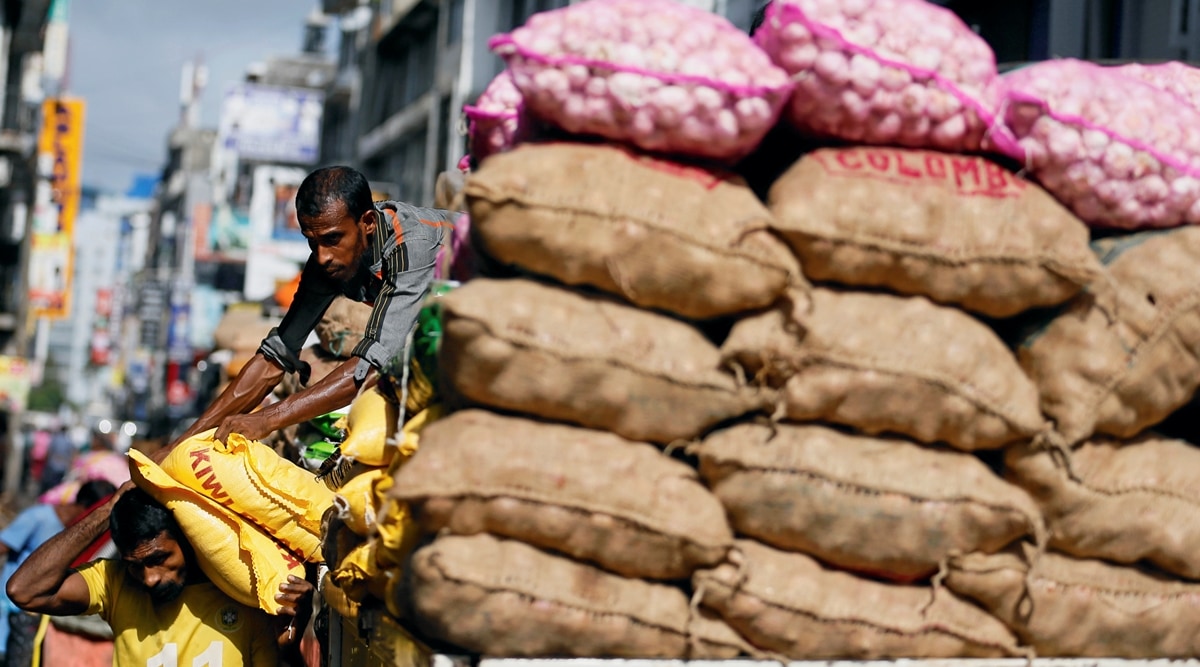
The Sri Lankan government said on Friday that it would bring new laws to deter hoarding and increase sanctions on traders in an attempt to address food shortages caused largely by the country’s deteriorating foreign exchange reserves. reported the Reuters news agency.
The development comes a day after the government denied reports of the country facing any kind of food shortage. Instead, the government led by Gotabaya Rajapaksa said the measure was preventive to stop monopolizing traders.
According to the PTI news agency, Rajapaksa on August 31 issued emergency regulations to control commodity prices. “The president has enacted emergency regulations under the Public Safety Ordinance on the supply of essential goods,” a presidential spokesman Kingsley Ratnayake told the agency.
“Some local and foreign media are carrying out media stories about the lack of food in the country. There is no basis in these reports, ”added Ratnayake, who is also the government’s information director.
However, according to a BBC report, the announcement was made after an increase in the cost of staple foods such as sugar, onions and potatoes. The report also mentioned long queues outside stores due to the shortage of other products such as milk powder, kerosene and cooking gas.
What caused the shortage?
According to Reuters, the island nation imports a large portion of its food supply. The recent decline in foreign exchange reserves and a sharp depreciation of the rupee led the government to implement an import ban.
 Fresh food is seen on a supermarket shelf in Colombo, Sri Lanka, on June 17, 2020. (File / Reuters)
Fresh food is seen on a supermarket shelf in Colombo, Sri Lanka, on June 17, 2020. (File / Reuters)
Shortage of production and logistical bottlenecks due to a new wave of Covid-19 infections have also been factors.
The country’s Census and Statistics Department said the rising exchange rate was one of the reasons for the rise in prices of many essential items over the past year.
Month-on-month inflation rose to 6% in August, mainly due to high food prices, the department said.
How is the reaction?
As the Sri Lankan rupee has already lost 7.5% against the dollar so far this year, Sri Lankan importers are worried that price controls will discourage imports, Reuters reported.
“Commodity prices are rising in world markets, so long-term internal price controls are unfeasible. Banks currently give dollars for essential food, but unless the government intervenes to manage the rupee, it will be difficult to keep prices stable, ”the agency said the chairman of the Association of Commodity Importers, G Rajendran.
He also said Sri Lanka needs about US $ 100 million to import essential food every month for items such as lentils, sugar, onions, potatoes, spices and cooking oil.
Store owners are also concerned that stricter measures will affect them unfairly. “We sell at the prices that wholesalers give us. Small shop owners also have to make a living and our margins are shrinking so much that we have almost nothing, ”a grocery store owner told Reuters.
Meanwhile, the country’s main opposition, the Samagi Jana Balawegaya (SJB), has said the government declared a food emergency in “bad faith” and “with a later motive of further unfairly restricting the fundamental rights of citizenship”.
Currently, Sri Lanka has a 16-day curfew (until September 6) due to an increase in Covid-19 cases.
(Agency tickets)